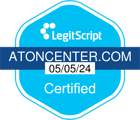
Social Addiction and Detox
Many of us realize we are entrapped by an addiction years after it’s taken hold, making the journey back to recovery more difficult. We often build bonds with groups that can evoke the worst aspects of addiction within us and exacerbate our illness. A study in the National Library of Medicine found that social media users who discussed drug use frequently are surrounded by or included in groups that also reinforce negative behavior in their own private conversations.
Sometimes, the most important step in recovery is taking one step back to survey these bonds with the distance of an astronaut. Ignore the tiny, microscopic surface problems and stressors that suck out our daily energy. Instead, observe how larger systems in our lives interact: how time spent with friends, family, and our occupations motivate us towards our goals, or distract us from who we want to be.
Changing your social environment doesn’t mean ignoring or losing friends and family bonds we created. It means understanding your goals, your plans for recovery and long-term health. It means strengthening your social connection to those who encourage your success.
Either by meeting new people, or simply understanding those in our lives better, we can see how our bonds with the people around us can influence our health. Do your interactions with friends motivate you towards your ambitions, or do they distract you with drugs and alcohol? Our SMART recovery plan helps you form new and motivating bonds, and unifies your goals with your family and friends.
Why AToN Center focuses on Group Connections.
Social bonds are an essential part of health. Because of this, group therapy is an indispensible tool for long term aftercare. Many patients develop lifelong connections with friends through groups in rehab, which empowers them to live a healthy, drug and alcohol free life. A study in National Institute of Health found that peer support groups reduced substance use and cravings, and improved the effectiveness of treatment. Research even suggests that strong social connections through challenging times can reduce aging and genetic disorders by preserving our DNA telomeres (the caps that “hold” chromosomes together). Simply put, connections with others not only improve our emotional and mental health, it preserves our physical health.
Group therapies and social bonding programs have been part of rehabs since their inception, but our SMART program puts a heavy focus on group education and continued learning, to give you the tools and resolve to own your recovery. Most importantly, we provide you an opportunity to step back, see things from afar, and plan a long and healthy life here on Earth, with family and friends, new and old.
Originally posted on March 28, 2019 @ 4:19 pm


















